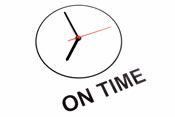 Everybody has to start somewhere. No matter what you do in your career, there will always be at least one first day at work. You could have several first days depending on what opportunities you choose. One thing that can make those first days in the workplace difficult is when you find out that the person you replaced was a highly popular company legend.
Everybody has to start somewhere. No matter what you do in your career, there will always be at least one first day at work. You could have several first days depending on what opportunities you choose. One thing that can make those first days in the workplace difficult is when you find out that the person you replaced was a highly popular company legend.
It’s not always easy filling in the shoes of the company favorite. With so many professionals spending more of their time at work, strong relationships are being built with co-workers and a new employee can sometimes be seen as an intrusion, or an outsider. You’ll need time to develop relationships and become a valued member of the team.
Here are some things to remember and put into practice so you can demonstrate to your peers and managers that you are worthy of the job, no matter who came before you.
Patience is a Virtue.
It can take time to fit in. You won’t be able to shake the “new guy” stigma overnight. Everybody was the new kid on the block at some point in their career. Be patient with your fellow co-workers and their loyalty to the former employee. It would be easy to vent frustrations about the cluttered and backwards filing system the previous favorite left you, but being respectful of the former employee will earn respect from your peers.
Take the time to ask questions. Ask why things are done the way they were, and request feedback from those around you. With a little hard work and dedication, you can be a valuable asset to your team.
Be Yourself.
The former colleague left a special place in the minds of those at the workplace that only he or she can fill. It’s impossible for you to fit into that role, so don’t even try. This is your opportunity to create your own memories and circle of influence so your team members will remember you for your unique contributions to the company.
You have your own personality, qualifications, and skill sets, and you need to demonstrate these to your co-workers. Figure out what needs you can meet with your various talents, and develop your own goals and objectives. Write a list of things you can offer that no one else can, then figure out how to focus within your new role.
Ease Into the New.
Changes can be met with resistance and hesitation, especially if they differ from the way they’ve been done before. Consider taking your new ideas one chunk at a time and ease your colleagues into them. Don’t push all of your new and brilliant ideas into practice all at the beginning. That will cause more friction among your team no matter how good the ideas may be.
You can also earn team approval by recognizing other’s ideas. When getting to know your fellow workers, find out what kind of changes they would like to see. Maybe some of them never spoke up because they were getting in the way of the former company legend.
Coming to a new job when your co-workers have a preconceived expectation can be frightening. But, if you just be yourself instead of trying to be someone you’re not, you can become a valuable asset to your company and earn respect from your co-workers based on your own merits.
Have you replaced an office favorite? What have you done to make your own contributions to your job?




